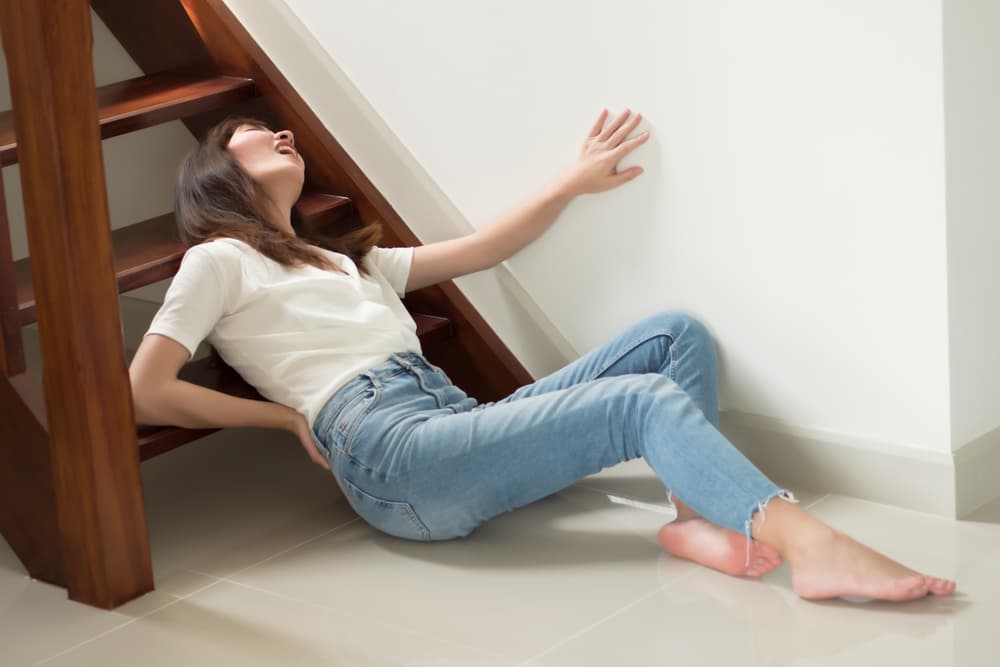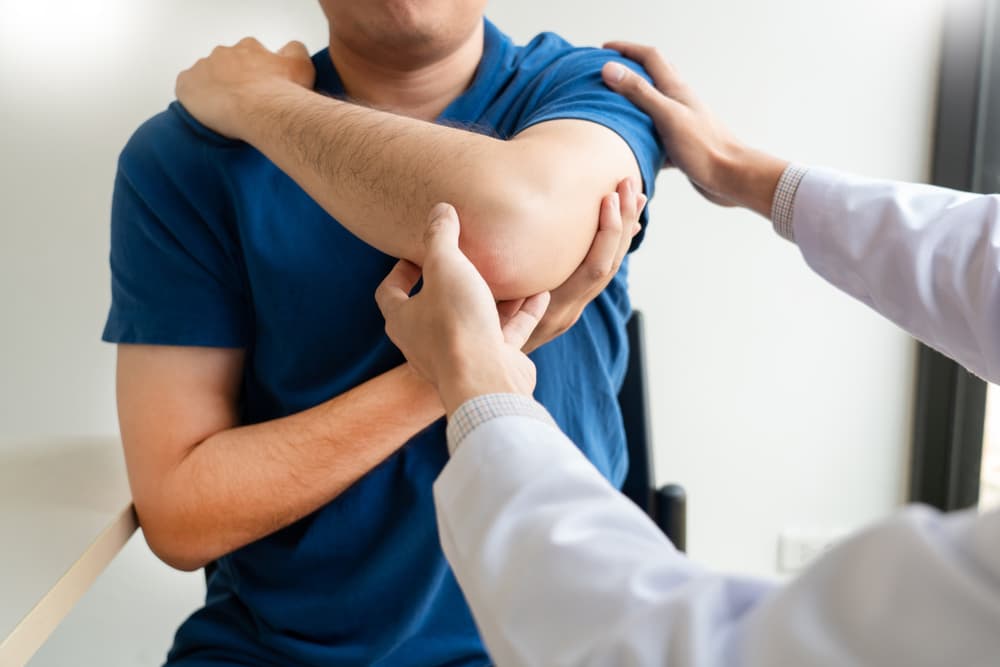Your landlord may seem like they have unlimited power, but the law governs all aspects of their relationship with you. Not only do they have obligations under the terms of your lease contract, but they also have other requirements they must follow under common law.
Landlords can be responsible for negligence when it has injured you or your guest. First, you must prove that the landlord breached the duty of care they owed. Then, you need to file either an insurance claim or a lawsuit against them. It is one thing to prove that your landlord was negligent, but it is an entirely different thing to get enough compensation for your injuries.
An experienced San Antonio premises liability lawyer can obtain total financial compensation for your injuries and will stand up for your legal rights when someone else has injured you through their carelessness. Contact a lawyer today if your landlord’s negligence has caused you harm.
The Extent of the Landlord’s Duty of Care
Your landlord has a legal relationship with you as their tenant; thus, they owe you a duty of care and may be responsible for some conditions inside your apartment.
The landlord also owes you a duty of care regarding the common area. They must maintain these premises and keep them in a reasonably safe condition and can be liable if they fail to do so.
Your landlord may owe a duty of care to the social guests you have invited onto the property, but are not responsible for a trespasser on the property (they must only avoid deliberately hurting them).
The Legal Standards That Landlords Must Observe
In any case, a landlord faces judgment by the legal standard of negligence. You need to prove four elements to show that your landlord was negligent, including:
- The landlord owes you the duty of care – they will owe this duty to their tenants, guests, and anyone with a legal right to be on the property.
- The landlord breached their duty of care by doing something unreasonable under the circumstances.
- You suffered an injury.
- The landlord’s actions were the proximate cause of your injury.
You have the burden of proof to show each of these elements and must show what the landlord did or did not do.
Causes of Action Against Your Landlord
You can sue the landlord for any injury on the premises. Here are some common reasons why people may sue landlords.

Premises Liability Cases
One common reason people sue landlords is slip and fall accidents. Tenants and their guests may fall in the common areas, including:
- Hallways
- Stairwells
- Sidewalks
- Parking lots
In addition, people may sue landlords for injuries they suffer in other facilities and amenities the landlord provides, such as swimming pools and playgrounds.
The landlord cannot create any dangerous conditions on the property themselves. In addition, they must remedy any hazardous situation created by others within a reasonable amount of time after they knew or should have known about it.
Landlords should:
- Inspect and repair the property with regularity
- Monitor common areas of buildings to clean up any spills or debris on the floor
- Repair cracks in the sidewalk
- Replace any worn carpet in the lobby
- Take steps to warn residents of any dangers that they may not see on their own
Injuries and Losses from Slip and Fall Accidents
Slip and fall accidents can result in various injuries and losses that can have serious physical, emotional, and financial consequences. A slip and fall accident can be a traumatic event that disrupts your life and leaves you with significant challenges.
One common type of injury that often occurs in slip and fall accidents is fractures or broken bones. When you fall, the impact can cause bones to break, leading to significant pain, limited mobility, and the need for medical intervention such as surgery or setting and casting of the affected area. Fractures can occur in various parts of the body, including the wrists, arms, hips, and ankles.
In addition to fractures, slip and fall accidents can also result in soft tissue injuries, such as sprains and strains. When you fall, your body may twist or land in an awkward position, causing damage to the muscles, tendons, and ligaments. These injuries can be painful and may require physical therapy or other forms of treatment to regain strength and mobility.
Slip and fall accidents can also lead to head injuries, including concussions and traumatic brain injuries. When you fall and hit your head, you may experience symptoms such as dizziness, confusion, headaches, and memory problems. These types of injuries can have long-term effects on your cognitive function and overall well-being.

Aside from physical injuries, slip and fall accidents can also result in financial losses. Medical expenses can quickly add up with hospital visits, diagnostic tests, treatments, and medications. You may also face lost income if your injuries prevent you from working or require you to take time off for recovery. Additionally, there may be costs associated with rehabilitation, assistive devices, and home modifications to accommodate your injuries.
Slip and fall accidents can have significant consequences, and you must take action to protect yourself and your future. Consult with a slip and fall attorney to explore your options and pursue the compensation you are entitled to.
Failure to Provide Security Cases
Landlords are also required to provide adequate security for residents. The landlord is not automatically liable whenever an assault happens on their property but must provide reasonable security measures based on what they know or should have known. In other words, they should act in the face of foreseeable dangers.
Suppose the property is in an area with higher crime. In that case, the landlord may need to take additional steps to secure the property and keep residents safe, including security patrols and increased control over who may enter the property.
Injuries Caused By Failure to Inspect, Maintain, and Repair the Property
Landlords must inspect and repair the property. They can create dangers by ignoring known and foreseeable risks, such as not checking carbon monoxide detectors regularly. Landlords should respond within a reasonable time after tenants report hazards that can cause danger and need to be proactive about inspections. If a resident suffers an injury from a landlord’s failure to make timely repairs, they can sue the landlord.
Landlord Defenses to Lawsuits
To receive a settlement or jury award, you may have to overcome some defenses that the landlord may use against you, which can include:
- The tenant was the one who was negligent and either caused their entire injury or most of it.
- The tenant assumed the risk of whatever activity they were engaged in during their injury.
- The accident or incident that happened was not foreseeable.
- The landlord could not have known of any harm and taken action within a reasonable amount of time.
Your compensation is at risk because the landlord (through their insurance company) can deny you payment if they can prove that you were at fault. Your attorney may need to defend your actions leading up to the accident.
Practical Considerations for Tenants
What you do after the incident can determine whether you can receive financial compensation and how much. An experienced attorney can guide you through the necessary steps and put you in a better position to maximize the value of your personal injury claim.
Documenting Incidents and Injuries
If you have suffered an injury in an incident at your residence or on your premises, you should keep track of what happened to the fullest extent possible. This documentation includes evidence you may have had about the dangerous condition before your injury and what the scene looked like at the time of the accident. In addition, you should obtain as much evidence as possible about your physical injuries to prove your damages when fighting for financial compensation.
Communicating with Landlords
Hopefully, you reported any concerns or dangerous conditions to your landlord before the incident because these reports can inform them that there is a problem and that they must take action. If you put these reports in writing (and you should have), you should keep a copy of the communication and provide it to your lawyer.
Then, you should always report the incident to your landlord afterward so there is a record. Make sure you stick to the facts without giving your opinion about what happened because your lawyer will work to prove liability when the time comes.
Contact an Experienced Premises Liability Lawyer After You Have Suffered an Injury
When you have suffered an injury by your landlord’s negligence, you need someone to represent you throughout the legal process. You may feel powerless on your own, but an experienced premises liability attorney can amplify your claims and fight for your legal rights.
Here is how an experienced premises liability attorney can work to hold your landlord accountable for what happened to you.
Investigate the Cause of Your Accident
Before filing any claim, you need to know what caused your accident. In some cases, the cause may be clear at the time of the accident. Other times, you may only learn the reason for the accident after some investigation.
Determine Who May Be Responsible
Generally, your landlord will be the legal entity you will sue in your premises liability case. However, there may be other potential defendants in your case. You must determine the correct legal entity to sue, which can be challenging when properties have different ownership structures.
Gather Evidence that Can Support Your Claim
In any premises liability case, the critical consideration is what you can prove. You have minimal time to assemble the available evidence in your case. Some of the evidence you need may be in the hands of the responsible party, and you may need to obtain it through the discovery process.
Estimate the Damages that You Can Seek
Before filing a claim against the landlord, you must know how much compensation you may be due. You are entitled to economic and non–monetary damages you have suffered.
An attorney will review the specifics of your case to determine how much you should seek in a claim or lawsuit. They may work with experts when necessary to correctly estimate what you may deserve. To be entitled to damages, you must prove them with specificity.
Fight for You to Obtain Full and Fair Compensation for Your Injuries
You will need to fight to get the money you deserve. Whether you have filed an insurance claim or a lawsuit, you must work hard to get everything you are due.
Your damages can be considerable in a premises liability case, and these elements can include:
- The complete cost of your medical expenses
- Lost income for the time that you have missed from work or any reduction in your earning capacity
- Pain and suffering damages for the post-accident ordeal
- Loss of enjoyment of life
- Embarrassment and humiliation
- Scarring and disfigurement
Your premises liability damages cover both past and future harm you will experience because of your injuries. Although it seems complicated to know how you will be affected in the future, estimating these damages is precisely what your lawyer provides.
Your attorney will pressure the landlord’s insurance company to pay for your injuries. They may negotiate higher compensation during the claims process, using the threat of a lawsuit to scare the insurance company. Although insurance companies seem all-powerful, they are afraid to go before a jury.
Your attorney will stand up for you when the insurance company gives you the runaround by denying your claim entirely or offering you less than you deserve in a settlement.
You Can Afford a Premises Liability Attorney

You may be worried about spending much of your limited available funds on hiring an attorney, but this should not get in the way of obtaining legal help for your case. You do not have to pay your lawyer anything at the beginning of your case, nor do you have to write them any checks at any time for their services. Your attorney receives payment for your case from the proceeds of your settlement or jury award, and if you do not receive anything, your attorney does not receive anything. There is no risk to you in getting legal help.
Your landlord will never take you seriously when you approach them to tell them that they are responsible for your injuries, but will sing an entirely different tune when there is an experienced personal injury attorney involved in your case. You need to hire a lawyer as soon as you have suffered an injury and only take action after consulting them.
